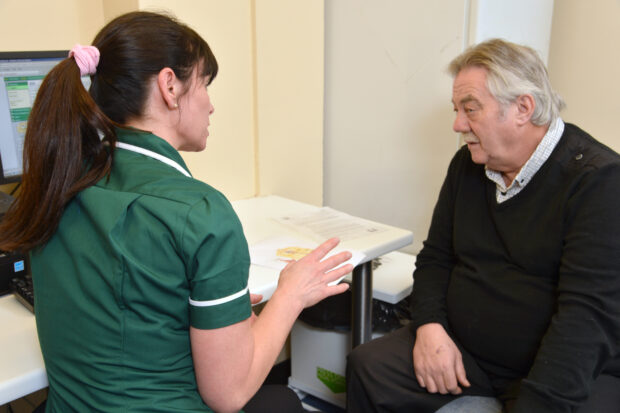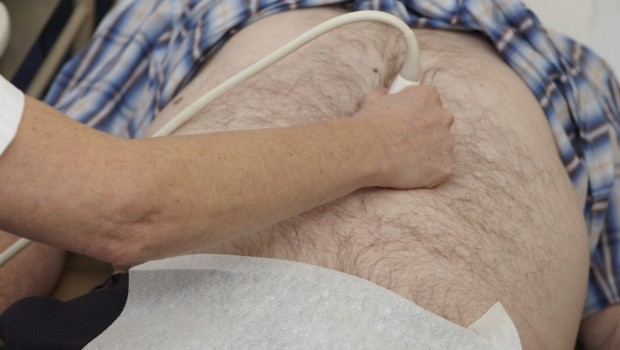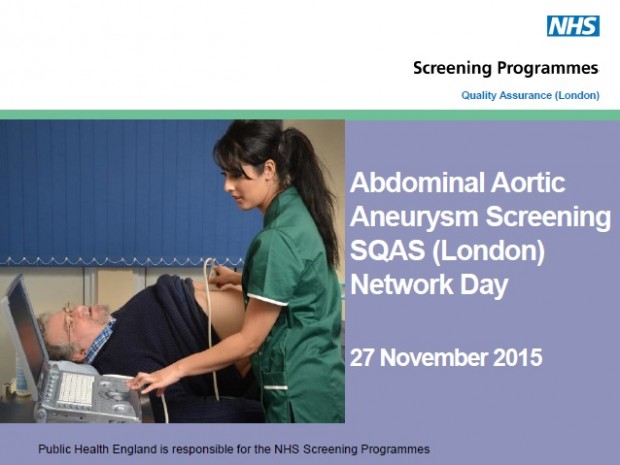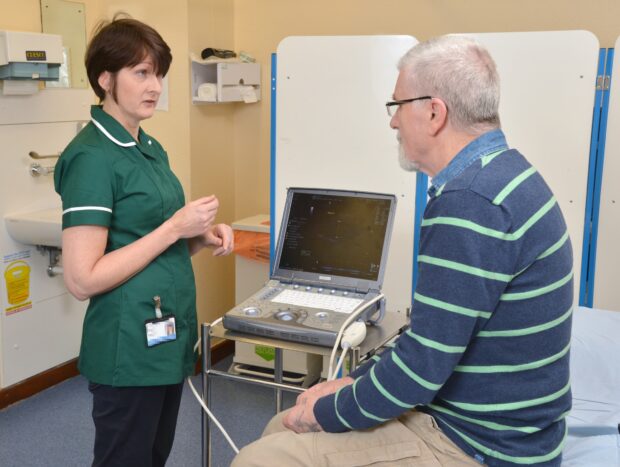NHS Abdominal Aortic Aneurysm Screening Programme
We have published the key performance indicator (KPI) non-cancer screening data for the third quarter of 2015 to 2016 (1 October 2015 to 31 December 2015). KPIs are used to measure how the NHS screening programmes are performing and aim to give a …
...Of the 41 local AAA programmes, 2 didn’t meet the acceptable threshold, 28 programmes reached the acceptable threshold and 11 reached the achievable threshold of 100%. These figures showed that...
NHS Screening Programmes offers screening to all eligible patients within a defined population. However, ensuring equality of access to services for patient groups with specific needs can be challenging.
The nurse specialist is an important role in the NHS Abdominal Aortic Aneurysm Screening Programme.
As regional head of the Screening Quality Assurance Service (SQAS) in London, I was delighted to host around 45 delegates at the capital’s first abdominal aortic aneurysm (AAA) screening networking and learning event on 27 November 2015.
...3. A referral is sent by Trust A to Trust B by email but not followed up any further 4. Mr. Jones does not receive an appointment to see the...
...meeting for abdominal aortic aneurysm screening programmes in the capital at the end of this month. The meeting, on Friday 27 November at the University of London, is open to...
...with their local programme’s nurse specialist. The role of this nurse practitioner/vascular nurse is to assess men and give them appropriate advice on lifestyle changes. They can also refer men...
...and Justice Team, the National Offender Management Service, NHS England and other PHE colleagues to establish an interim process for screening in prisons ahead of the introduction of a new...
...cause of death in cases where no cause has been confirmed. We appreciate that this might mean a lot of work chasing post mortem results, death certificates and GP or...





